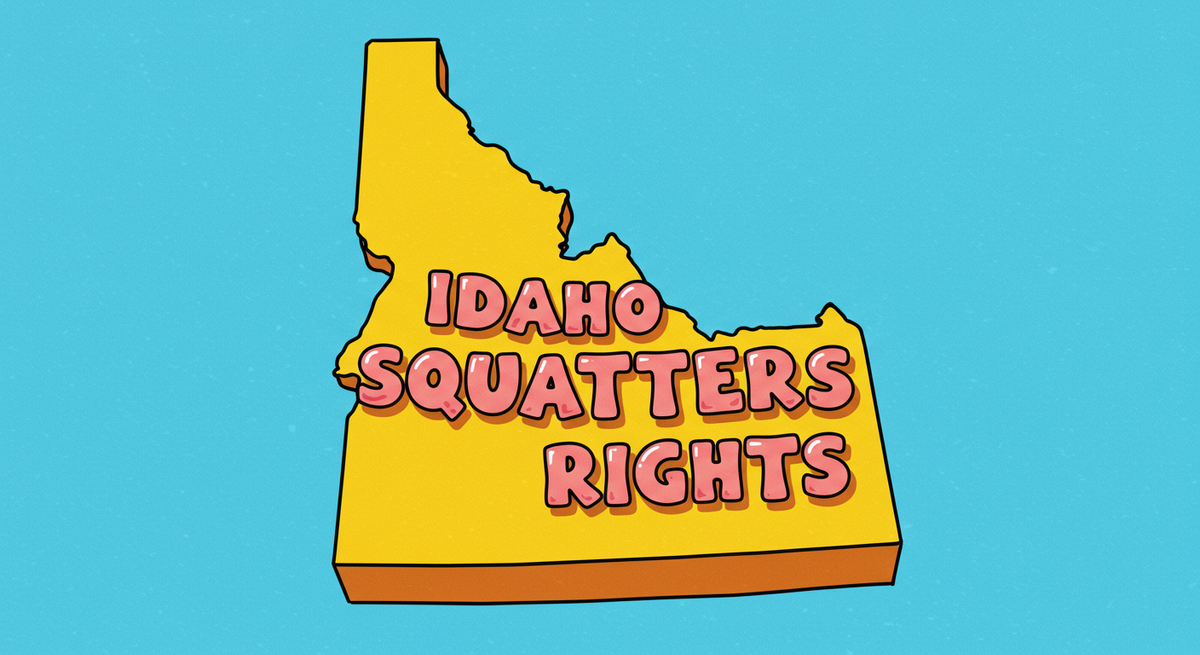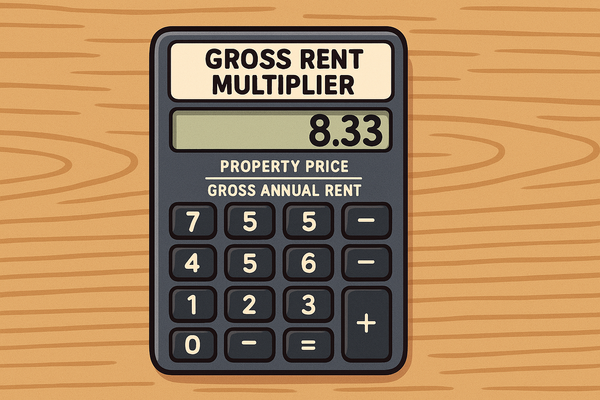Idaho Squatter's Rights Guide: 2025 Laws, 20-Year Requirements, and Property Protection
Idaho requires squatters to occupy property continuously for 20 years before filing an adverse possession claim

In Idaho, squatters' rights operate under a precise legal framework that has seen significant transformation over the past two decades. For property owners, understanding Idaho's adverse possession laws is essential to protect your investment against unauthorized occupants who might attempt to claim legal ownership through extended occupation.
While squatting describes the unauthorized occupation of property, adverse possession represents the legal doctrine through which squatters can potentially claim ownership rights after satisfying strict requirements over an extended period. Idaho's approach to this legal principle balances traditional property rights protection with the ancient common law concept that land should not remain permanently abandoned.
A Squatters Tragic End: In Firth, Idaho, a shocking 2021 standoff ended in tragedy when squatter Bruce Diehl, who had occupied a home under renovation for just "a week or two," falsely claimed ownership rights based on misunderstood adverse possession laws. The confrontation escalated into a deadly shootout with law enforcement, dramatically illustrating the dangerous consequences when squatters resist removal and misinterpret Idaho's strict 20-year requirement.
Key Takeaways
- Idaho requires squatters to occupy property continuously for 20 years before filing an adverse possession claim
- Squatters must pay all property taxes during the entire 20-year period to have a valid claim
- The 2006 law change quadrupled the required occupation period from 5 years to 20 years
- Idaho's requirements are significantly more stringent than neighboring states like Montana (5 years) and Wyoming (10 years)
- Property owners should follow formal eviction processes rather than attempting "self-help" removal methods
- Regular property inspections and security measures represent the best prevention against potential squatter claims
- Squatters must maintain "color of title" and make substantial improvements or enclosures on the property
While Idaho law technically permits an individual to pursue adverse possession after residing on property for 20 continuous years, the state imposes extensive additional requirements that create substantial barriers to successful claims. Beyond the lengthy occupation period, squatters must demonstrate "hostile" possession (without the owner's permission), actual physical occupation, open and notorious possession, exclusive control, continuous occupation without interruption, payment of all property taxes, and substantial property improvements or enclosures.
Understanding Idaho Squatter Rights in 2025
In Idaho, squatting itself is not legal, though the adverse possession doctrine provides a pathway for squatters to potentially gain legal ownership after meeting stringent requirements over a 20-year period. This framework reflects Idaho's strong commitment to protecting legitimate property owners while acknowledging the ancient common law principle that truly abandoned land should eventually return to productive use.
Unlike in some states with more permissive squatter regulations, Idaho's approach heavily favors property owners through its extended timeframe and additional requirements. The distinction between squatting and trespassing remains important, however. While trespassing constitutes a criminal offense addressed by standard law enforcement, squatting typically falls under civil law jurisdiction, requiring formal eviction procedures rather than immediate removal.
Idaho Adverse Possession Requirements
For a squatter to claim legal ownership through adverse possession in Idaho, they must satisfy several requirements known as the "OCEAN" framework plus additional state-specific conditions:
Open and Notorious
The occupation must be visible and obvious to anyone, including the rightful owner. Secret or hidden occupation does not qualify for adverse possession claims. The squatter must live openly as if they were the legitimate property owner.
Continuous
The squatter must occupy the property without interruption for the full 20-year period required by Idaho law. Any significant breaks in occupation reset the clock on the adverse possession claim. This extended timeframe represents one of Idaho's strongest protections against squatter claims.
Exclusive
The squatter must maintain exclusive possession of the property, meaning they cannot share the property with others, including the rightful owner. They must demonstrate sole control over the property throughout the entire statutory period.
Actual
Physical occupation of the property is required – merely claiming ownership without actually living on or using the property is insufficient. The squatter must treat the property as their own through physical presence and maintenance activities.
Hostile
In legal terminology, "hostile" possession indicates that the occupation occurs without the owner's permission and against their property rights. This requirement can be satisfied even when a squatter genuinely believes they have a right to the property due to misunderstanding or error.
Beyond these five fundamental requirements, Idaho law imposes additional conditions that further protect property owners:
- Payment of all property taxes throughout the entire 20-year period
- Protection of the property with a substantial enclosure or cultivation/improvement of the land
- Maintenance of "color of title" (documentation that appears to give ownership but contains legal defects)
These additional requirements create substantial hurdles for potential adverse possession claims, making successful claims extremely rare in practice.
How Idaho's Approach Differs From Other States
Idaho's approach to squatter rights stands out as particularly protective of property owners compared to neighboring states and the national landscape. The state's 20-year requirement represents one of the longest adverse possession timeframes in the country, providing substantial protection against unauthorized claims.
Adverse Possession Timeframes
| State | Required Occupation Period | Tax Payment Required |
|---|---|---|
| Idaho | 20 years | Yes |
| Montana | 5 years | Yes |
| Wyoming | 10 years | Yes |
| Oregon | 10 years | Yes |
| Florida | 7 years | Yes |
| California | 5 years | Yes |
| New York | 10 years | No |
Enforcement Approaches
Idaho maintains a primarily civil approach to squatter removal, requiring property owners to follow formal eviction procedures rather than permitting immediate law enforcement intervention in most cases. This approach differs from states like Florida that have recently implemented expedited removal processes through law enforcement channels.
While Idaho has not enacted legislation similar to Florida's HB 621, the state's extremely long adverse possession timeframe provides significant protection for property owners by making successful claims exceptionally difficult to establish.
Unlike some states that have trended toward criminal penalties for squatting activities, Idaho generally maintains the distinction between civil squatting matters and criminal trespassing. This requires property owners to navigate the formal eviction process rather than seeking immediate criminal enforcement in most situations.
Shocking Squatter Incidents in Idaho
Idaho has experienced several disturbing squatter-related incidents that highlight the potential dangers and complexities when unauthorized individuals occupy properties. These cases demonstrate why understanding squatter laws and taking preventive measures remains crucial for property owners.
The Deadly Bingham County Standoff
Perhaps the most shocking squatter incident in Idaho occurred in February 2021 in Firth, Bingham County. Bruce Diehl, a 51-year-old Shelley resident, had been squatting in a home under renovation while the legitimate homeowners were temporarily living elsewhere.
When discovered, the confrontation escalated dramatically after Diehl claimed ownership rights despite having occupied the property for only "a week or two" – far short of Idaho's 20-year requirement. The situation turned deadly when Diehl threatened law enforcement and engaged in a shootout with deputies, ultimately resulting in fatal injuries to the squatter.
This case highlights the fundamental misunderstanding many squatters have regarding adverse possession laws and the potential for dangerous confrontations when unauthorized occupants refuse to vacate properties.
The Nightmare of Selling a Home with a Squatter
In another troubling Idaho case that received national attention, homeowners Renee and Brian Prindl faced a nightmare scenario after moving out of their Idaho home while it was listed for sale. They discovered that a woman with several drug-related offenses had moved in and was claiming tenant's rights.
The woman allegedly produced a lease document that the Prindls had never authorized, highlighting how sophisticated squatters can exploit legal tenant protections through fraudulent documentation. When the homeowners sought an expedited eviction hearing, the judge denied their request, potentially forcing them into months of legal proceedings while the squatter continued occupying their house.
This case demonstrates the frustrating legal complexities property owners can face when removing unauthorized occupants, even when ownership rights are clear and undisputed.
How to Prevent Squatters in Idaho Properties
Prevention remains the most effective strategy for property owners in Idaho. Here are key preventive measures to protect your property from potential squatter situations:
Regular Property Inspections
- Visit vacant properties frequently or hire a property management company to conduct routine inspections
- Document property condition with dated photographs during each visit
- Maintain landscaping and exterior appearance to show active ownership
- Respond quickly to any signs of unauthorized entry or occupation
Security Systems and Monitoring
- Install visible security cameras and alarm systems
- Consider smart home security with remote monitoring capabilities
- Use motion-activated lighting around the property perimeter
- Install sturdy locks, security doors, and window reinforcements
- Consider security service patrols for valuable vacant properties
Property Maintenance
- Keep utilities active but on minimum service levels for vacant properties
- Maintain landscaping and regular exterior maintenance
- Collect mail regularly or have it forwarded
- Schedule timed interior lighting to create the appearance of occupation
Documentation and Signage
- Post "No Trespassing" signs prominently on the property
- Maintain comprehensive documentation of ownership
- Keep detailed records of property tax payments
- Document all maintenance activities and property improvements
Community Involvement
- Inform neighbors about vacant properties and ask them to report suspicious activity
- Join neighborhood watch programs
- Consider hiring a house-sitting service for extended absences
Professional Management
- Retain a property management company for vacant properties
- Consider short-term rentals if appropriate for your property
- Ensure quick tenant placement to minimize vacancy periods
These preventive measures not only deter potential squatters but also establish a clear record of active ownership that can prove invaluable if adverse possession claims arise.
Legal Process for Removing Squatters in Idaho
If prevention fails and you discover squatters occupying your property in Idaho, you'll need to follow the proper legal process for removal:
The Eviction Process
- Serve Written Notice: Provide appropriate written notice based on the specific circumstances. For squatters, a three-day notice to quit for unauthorized occupation is typically appropriate.
- File a Complaint: If the squatter doesn't vacate after the notice period, file a complaint of forcible detainer with the Idaho District Court.
- Court Issues Summons: The court will issue a summons that must be served to the squatter along with the complaint by the sheriff or an authorized process server at least 24 hours before the scheduled hearing.
- Attend Court Hearing: The court will schedule a trial within 72 hours of filing the complaint. Bring all evidence of your property ownership, including deeds, tax records, and other documentation.
- Obtain Writ of Restitution: If the judge confirms your ownership, they'll issue a writ of restitution authorizing the sheriff to remove the squatter.
- Sheriff Removes Squatter: The squatter has 72 hours to vacate voluntarily after the writ is issued. If they fail to do so, the sheriff will forcibly remove them.
It's important to note that regular police officers cannot remove squatters; only the sheriff has proper jurisdiction for this action. Throughout this process, working with an experienced local attorney specializing in evictions can help navigate potential complications and ensure compliance with all legal requirements.
Special Considerations for Idaho Property Owners
Idaho property owners should be aware of several special considerations regarding adverse possession and squatter situations:
- Tax Payment Requirement: The requirement for squatters to pay property taxes provides an important defensive mechanism. By maintaining accurate tax payment records, you can effectively challenge adverse possession claims.
- 2006 Statutory Extension: The extension of the statutory period from 5 to 20 years significantly strengthened property owners' rights. If unauthorized occupation began after 2006 (or shortly before if the 5-year threshold wasn't met), you benefit from the substantially longer timeframe required for adverse possession claims.
- Trespasser vs. Squatter Distinction: Idaho law distinguishes between trespassers (a criminal matter addressed by police) and squatters (a civil issue requiring formal eviction). Understanding this distinction helps you pursue appropriate legal channels.
- Avoid Self-Help Eviction: Following formal eviction procedures is essential, as attempting to remove squatters through self-help methods (changing locks, removing belongings, shutting off utilities) can expose you to legal liability.
- Document Everything: Maintain comprehensive records of property ownership, tax payments, maintenance activities, and any interactions with unauthorized occupants to strengthen your position in potential legal proceedings.
Landlord Rights and Responsibilities
As a property owner in Idaho, you have specific rights and responsibilities regarding squatters:
Rights:
- Evict unauthorized occupants through proper legal procedures
- Pursue damages for property destruction or unauthorized modifications
- File trespassing charges in appropriate circumstances
- Maintain and protect your property from unauthorized entry
- Verify the legitimacy of anyone claiming tenant status
Responsibilities:
- Follow legal eviction procedures rather than attempting "self-help" evictions
- Properly document ownership and unauthorized occupation
- Secure property after removal to prevent reoccupation
- Regularly inspect and maintain properties to prevent squatter situations
- Comply with all legal notice requirements and court procedures
Understanding these rights and responsibilities helps ensure that you address squatter situations legally and effectively while avoiding potential liability for improper removal procedures.
Frequently Asked Questions
General Squatter Rights Questions
Q: What are squatter's rights in Idaho? A: Squatter's rights refer to adverse possession laws that potentially allow someone to claim ownership of property after occupying it openly, continuously, and without permission for 20 years while meeting specific legal requirements including tax payment and property improvement.
Q: Is squatting illegal in Idaho? A: Yes, unauthorized occupation of property is illegal in Idaho. While squatters may eventually pursue adverse possession claims after meeting strict requirements, the initial act of occupying property without permission constitutes trespassing.
Q: How long does someone have to squat on property in Idaho to claim ownership? A: In Idaho, a squatter must continuously occupy a property for 20 years before they can file an adverse possession claim. They must also meet several other requirements, including paying property taxes throughout this period.
Q: Do squatters have to pay property taxes in Idaho? A: Yes. To make a valid adverse possession claim in Idaho, squatters must pay all property taxes during their occupation period. This requirement creates a substantial barrier to successful adverse possession claims.
Prevention and Removal
Q: How can I prevent squatters from occupying my property? A: Regular property inspections, security systems, property maintenance, "No Trespassing" signs, and professional property management are effective prevention strategies. Keeping properties occupied and well-maintained significantly reduces squatting risks.
Q: How do I remove squatters from my property in Idaho? A: You must follow the formal eviction process, which includes providing appropriate written notice, filing a complaint with the court, attending a hearing, obtaining a writ of restitution, and having the sheriff remove the squatter if they don't leave voluntarily.
Q: Can I physically remove squatters myself? A: No. Self-help evictions are illegal in Idaho. Property owners must use legal eviction processes rather than attempting to remove squatters themselves, as this could expose you to legal liability.
Q: Can I turn off utilities to force squatters to leave? A: No. Turning off utilities is considered a self-help eviction tactic and is illegal in Idaho. This could potentially expose you to legal liability and strengthen the squatter's position in court.
Legal Implications
Q: How does Idaho's approach to squatters differ from other states? A: Idaho's 20-year requirement is significantly longer than many states, such as Montana (5 years) and Wyoming (10 years). Idaho also requires payment of all property taxes and substantial property improvements or enclosures, creating multiple barriers to successful adverse possession claims.
Q: What's the difference between a squatter and a trespasser? A: Trespassing involves temporary unauthorized entry and is immediately addressed as a criminal matter. Squatting involves sustained occupation of a property and is typically treated as a civil issue requiring formal eviction procedures.
Q: Can squatters be charged with a crime in Idaho? A: While squatting itself is typically handled through civil eviction procedures, squatters may face criminal charges for related offenses such as breaking and entering, property damage, or criminal trespassing depending on the specific circumstances.
Conclusion
Idaho's approach to squatter's rights and adverse possession reflects a strong commitment to protecting property owners through one of the nation's longest statutory periods (20 years) combined with additional requirements for tax payment, property improvement, and "color of title." This framework makes successful adverse possession claims exceptionally rare while still maintaining the traditional legal doctrine.
The 2006 extension of the statutory period from 5 to 20 years significantly strengthened property owners' protections, placing Idaho among the states with the most owner-friendly adverse possession laws. This change, along with the tax payment requirement, creates substantial barriers to successful squatter claims.
For property owners, prevention remains the most effective strategy through regular monitoring, proper security, and active property management. When prevention fails, understanding and following the proper legal eviction process is essential to regain possession while avoiding potential legal complications.
By understanding Idaho's squatter laws and taking proactive measures to protect your property, you can significantly reduce the risk of unauthorized occupation and potential adverse possession claims.
Resources and References
- Idaho Code § 5-203: Adverse Possession
- Idaho Code § 5-210: Property Tax Requirements
- Idaho Supreme Court: Schoorl v. Lankford (2017)
Disclaimer: This article provides general information and does not constitute legal advice. Consult with a qualified attorney for guidance on your specific situation.





